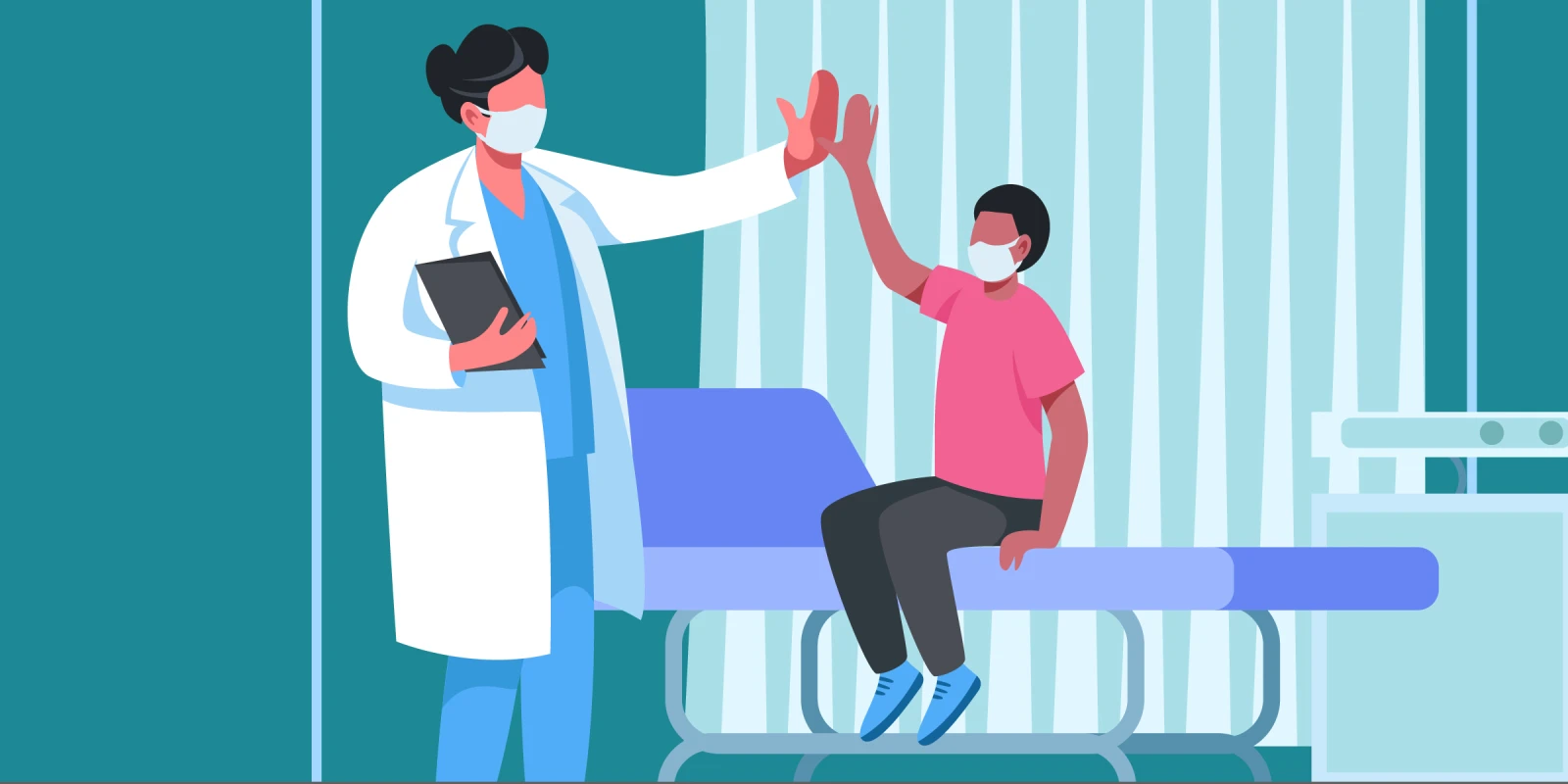The other day, my oldest child got on the bus to go to first grade. I was away at work and I felt terrible about it. I could not get on the bus for him, I could not get off the bus for him, I could not take the first step into the classroom for him; he had to do it all on his own. So why did I feel so guilty? It is the same guilt that catches up to me when, as a pediatric gastroenterologist, I see a patient for the last time.
Given the nature of my patient population, I often encounter patients who age out of my care. Recently, I had a 20-something patient, X, sit in front of me for his final visit. This was a patient I’d seen grow up — I’d been there to witness all of his struggles and victories with Crohn's disease.
I would like to say the journey has gone swimmingly for him, but it has not. I find these visits easier when the patient has improved and they are leaving your clinic in a good place. X has done everything I have asked of him and has still undergone his second surgery in as many years. He grew taller than we ever expected, but after puberty, his disease outfoxed every medical therapy we threw at it. In some respects, he is doing quite well. In others, I feel I have failed him.
During X’s course, my colleagues and I have always kept our eye on the ball, reviewing his goals of transition. As one would expect, he will be solely responsible for managing his own health condition moving forward.
Despite the fact that patients are more connected to their physicians than ever before, it is often challenging for a young adult to manage their ever-changing life, let alone a chronic disease. Crohn's disease touches every aspect of a person’s physical and mental well-being, and the decisions a young person makes may affect the rest of their life. Thus, it’s crucial that we physicians provide a roadmap for young people to independently manage their own care.
Early in adolescence and adulthood is the opportune time to impart these lessons in the form of “patient activation.” This is when the patient is empowered to play an increasing role in their own care, which includes finding solutions when new situations or problems arise with their health condition. As a physician, presenting those potential problems to patients in advance can stimulate their critical thinking and dampen their associated anxiety before they are faced with a real issue. (And anyway, maybe some of that anxiety is our own.)
Clinicians may wonder how to discuss future planning with a young person during an already busy clinic visit. I maintain that doing so is every bit as important as keeping an eye on the patient’s medical/physical well-being, if not more important. Patients with a high degree of activation as adults demonstrate decreasing parental involvement and increasing engagement over time, along with reduced socioeconomic challenges and a lower degree of comorbidities.
One key milestone to hit on the pathway to patient activation is a decrease in parental involvement. Parental involvement and patient engagement have an inverse, dichotomous relationship which shifts from one to the other with patient maturity. When the diagnosis happens in childhood, parents, with physician support, make difficult decisions with long-term implications, and the child's input is often limited. This is not intentional, but rather a product of the situation and of the degree of comprehension a child can have at the time. As a young child with a chronic disease develops and matures, past decisions which are just that, "in the past", become a new reality for them. Each child will mature at their own pace and including them in the decision process when psychologically capable is a very important aspect to their future care. Small, simple steps to engage the patient and encourage their own critical thinking will make it easier for parents to relinquish their responsibilities if the patient displays accountability for their adherence.
My patient X has already transitioned this responsibility of his care, taking many small steps over the years. He comes to visits by himself, advocates for himself, and objects for himself. I am proud of him. He has begun to achieve patient activation.
So as my child gets on his bus, so must my patient transfer care. He is more than ready. It is I who must prepare just as he has.
How do you impart lessons on managing care to your patients? Share your strategies in the comments below.
Dr. Jacob Kurowski is the Medical Director of Pediatric Inflammatory Bowel Diseases at Cleveland Clinic Children’s. He has a clinical and research focus in inflammatory bowel disease and hereditary polyposis syndromes. He tweets @JKurowskiMD.
Image by getronydesign / shutterstock







